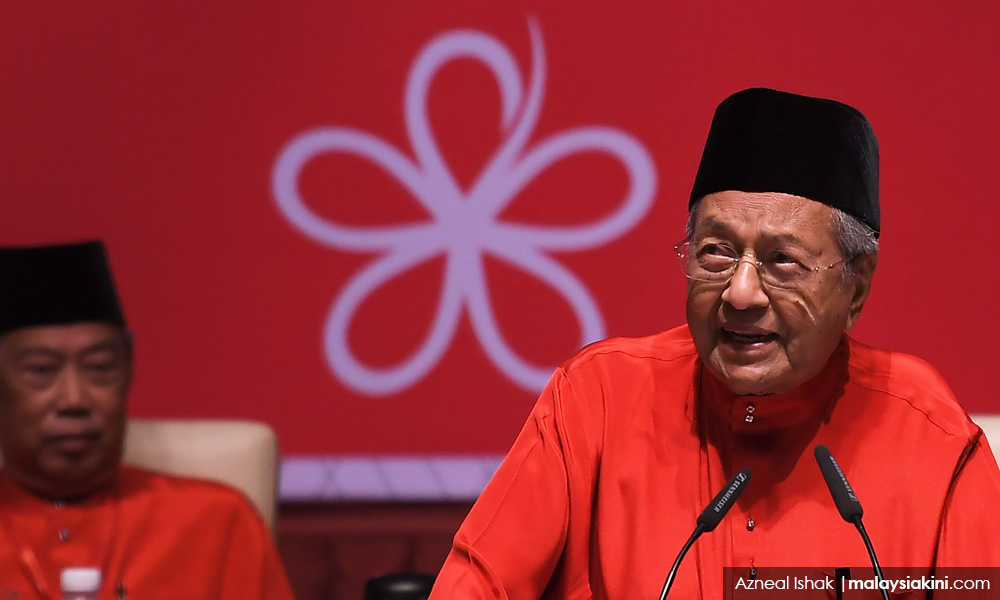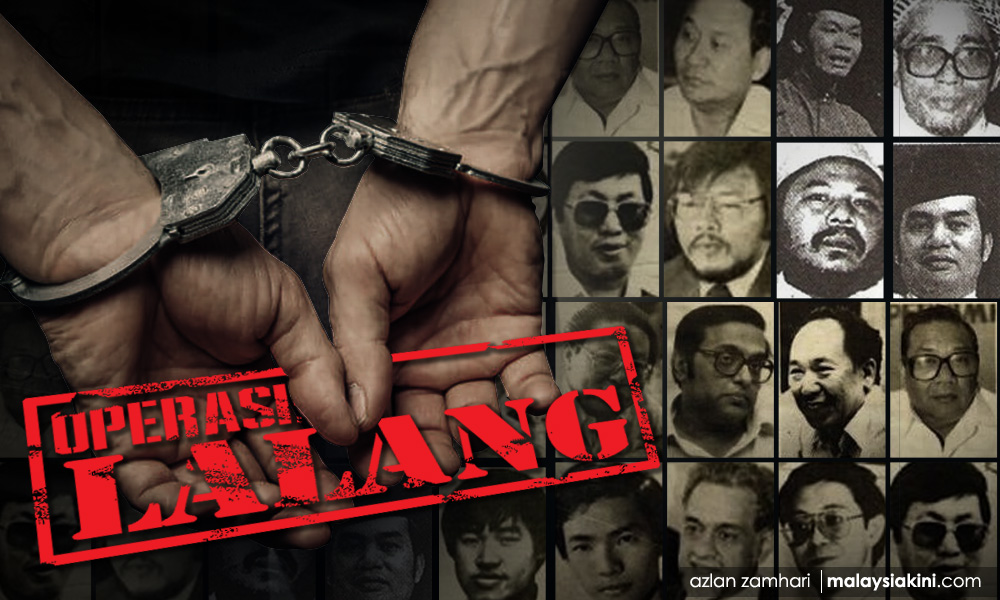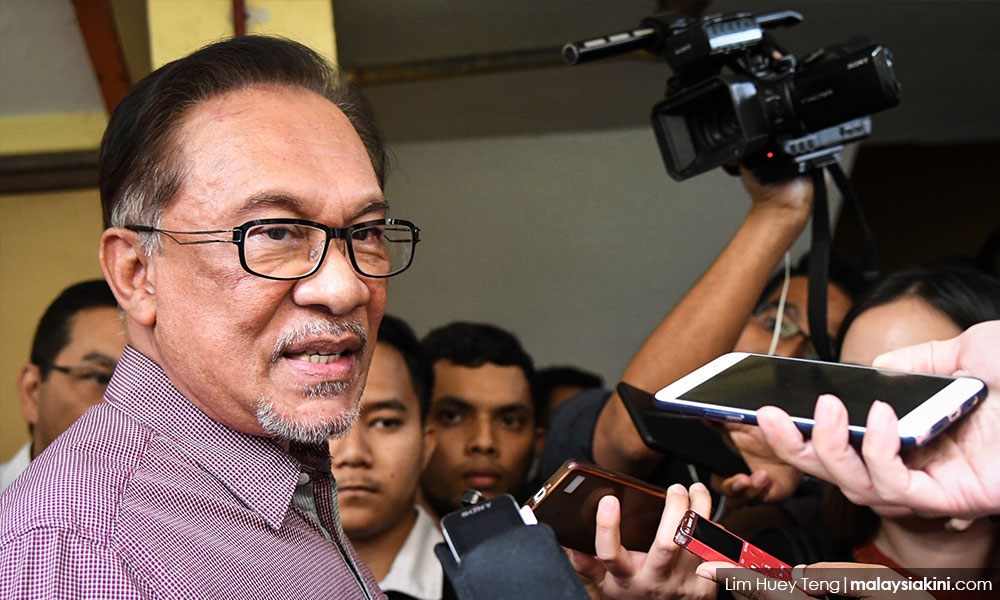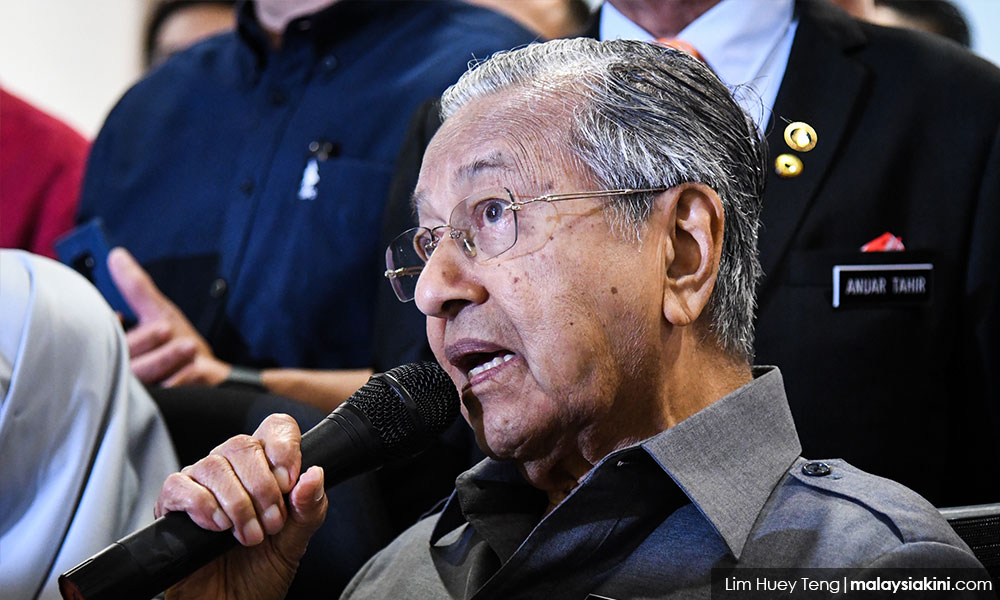
Published by Malaysiakini, images from Malaysiakini.
I remember glancing through Malaysiakini’s headlines some days ago and reading, Mahathir: Wealth should be distributed equally among races.
I didn’t give this much thought then – perhaps a small nod, thinking this was a generally positive statement, if not particularly significant or momentous.
I am not some hardcore socialist by any means, but I generally find that those who are have their hearts in the right place; so the words that I was probably subconsciously drawn to and found positive were “distributed equally”.
So I was a bit taken aback to read esteemed columnist P Gunasegaram’s rather different reading of these words.
He probably focused on the words “among races” and jumped at the opportunity to vehemently argue: “Look, Mahathir wants to take money from the non-Malays and give it to the Malays! All over again!”
Reflecting on this phenomenon at some length made me a little sad about how and why these things happen.
Gunasegaram is a towering presence in the world of columnists – vigorous, fearless and sharp, as well as a perfect gentleman. He is much my senior, and I am a big believer in respecting one’s seniors. I realise, however, that being that senior also sometimes comes with some amount of baggage.
In my limited personal experience, Malaysians of that age bore the very heavy brunt of Umno discrimination at its worst. It was a time when many non-Malays were denied access to key opportunities and career advancement merely based on the colour of their skin.
By my time, it had become easier for people, especially those born with some level of privilege, to sidestep a lot of the institutional racism of the past, due in large part, of course, to the tenacity of those who bore its brunt and paved the way for us.
Of course, I cannot presume to say whether this is the case for Gunasegaram per se. Getting into and graduating with a degree in physics from Universiti Malaya at that time must have been no small feat.
All things considered, it is understandable that such individuals of that time have a particular allergy to the Umno brand of racism and their ideas of “distribution of wealth”.
Abandon racial thinking
That said, the danger is letting that allergy and past experience colour our every single interpretation of what is happening in the present.
The types of Malaysians who likely form the bulk of Malaysiakini readership are probably quick to insist and call for Malays to abandon ideas of racial supremacy and institutional racism.
There’s absolutely nothing wrong in this. It is largely right and just. That said, the burden of engineering a new Malaysia does not fall on Malays alone and their rejection of old Umno ways.
As a non-Malay myself, I believe we too have an equal responsibility to abandon our obsession with race. This includes seeing a racial bogeyman around every single corner.
The proof of the pudding is, of course, ultimately in the tasting. If we do a careful, close reading of Mahathir’s words, I will be the first to admit – yes, Mahathir did refer to an income gap between Malays and non-Malays that needs to be closed.
We, of course, remember a time when Mahathir used to campaign for this using fire and brimstone, with the same ferocity with which Gunasegaram writes today – and he used to do so in a way that sought to keep other races strictly “in line”.
I am not one to defend or whitewash Mahathir’s past. “Operasi Lalang”, cronyism, a disregard for the institutions of a functioning democracy – these sins are real sins.

Does this mean we should judge each and every one of Mahathir’s deeds and words through the lens of his past? Interestingly, this is not the first time an anti-BN movement has had to examine this question.
When Anwar Ibrahim rose to lead Pakatan Rakyat, the questions of his past were brought up again and again – his attitude towards Chinese schools, his alleged threats regarding temple bells, his ultra-Malay phase, and so on.
Those who would argue that a leopard cannot change its spots should be willing to apply this logic consistently.
Only the stupid repeat mistakes
Let us then examine some of the actual quotes, starting with Mahathir:
“That’s why we need to focus on tackling social poverty of all races,” he said.
“It has become our duty to determine that we distribute the wealth equally or at least to a level accepted by all the communities in the country,” he said.
“It’s no use if equal rights are restricted to only voting for a government. If we cannot achieve equality in status, comfort, and peaceful life and prosperity for all races, then we cannot be seen as successful in building the nation,” he said.
“The fact is that there is still a split among the races and this is not good and not safe for us,” he said.
“All the races need to come together […] we find that the three races in Sabah and Sarawak live and play together. If we can achieve that, I am confident that the country will be more progressive,” he added.
This is not everything he said; if anyone would like to go into a line by line discussion, that is certainly a path I am willing to pursue. I believe that if these words were assessed objectively by an external observer, “racist” is not likely to be an adjective used.
Let us now look at some of Gunasegaram’s comments:
“When Prime Minister Dr Mahathir Mohamad sank low to say that wealth should be distributed equally among races, he indicated plainly that he has no solid plan to increase incomes and alleviate poverty for all Malays and Malaysians. Jaded and faded, his priorities are elsewhere.
“During his time as prime minister […] he did not care for the common Malay but was instead more focused on creating Malay billionaires overnight through the awarding of lucrative operations handled by the government or government companies previously, such as roads, power producers, telecommunications and others.
“True Malaysians don’t want the creation of Malay (or any other ) billionaires from government wealth.”
I am a bit confused as to how we went from Mahathir’s comments above to having no solid plan. This charge about Mahathir wanting to go back to creating billionaire cronies is also a little puzzling.
I don’t contest the fact that this was a modus operandi of the past; but if Mahathir still really believed in this, why would he have bothered to fight the biggest billionaire crony of all time, Najib Abdul Razak?
If it was money he was interested in, all he had to do was accept a pay-off from Najib to shut up – the latter would probably have been willing to part with a king’s ransom (such as it was, almost literally) to buy his silence and support.
At 93 years old, what kind of favours would Mahathir expect in return for creating billionaires? More kickbacks?
Arguably more than anyone walking the earth, he has seen first-hand the abject failure of trying some perverted version of trickle-down economics to improve the Malay economic lot.
It would take a very stupid person indeed to repeat that mistake. Mahathir can be justifiably called a great many things, but “stupid” is not one of them.
Agitating for Anwar may not help
It is never pleasant to be even perceived as questioning another writer’s motivations. I hope my impertinent audacity in trying to identify some long-term pattern in Gunasegaram’s writing will be forgiven.
Looking at the gentleman’s article history, on page one a browser search reveals Mahathir’s name three times, and on page two, six times – none of them positive. Perhaps it would not be such a stretch to think that the author may have a bit of an axe to grind.
In these two same pages, we see three articles full of glowering praise for Anwar. In his most recent two articles, we see the following quotes:
“Mahathir, obviously, has no plan to improve the livelihood of the common Malay and all Malaysians, stuck in old-school forced distribution which is injurious to the economy, maybe even fatal in the long term. High time he made way for someone else who may.

“The other thing that the presidential council should do is to push for Anwar’s inclusion in the cabinet and for him to become deputy prime minister soonest.”
These are merely two examples of a recurring theme. Surely someone as junior to him as myself should not presume to comment on how Gunasegaram does his job, but my own humble belief is that a writer should at least make some attempt towards subtlety, nuance and objective fairness.
The other irony, of course, is that Gunasegaram may be moving towards becoming one of the biggest stumbling blocks to his own goals. The last time Anwar was impatient to replace Mahathir, the country was plunged into political turmoil that arguably lasted some twenty years.
If Gunasegaram is truly so passionate and eager to see his hero become prime minister, he might be better off training his guns on PKR deputy president Azmin Ali.
Mahathir has repeated time and again his commitment to transitioning to Anwar. What is Azmin saying in public? (Certainly milder things than he is probably saying in private).
Anwar is so very close to his long-eluded goal, and he probably has more allies in Mahathir’s circle than some may think. The latter is not his enemy, and not the one Anwar’s supporters should be worried about.
Let’s come back to the question of Mahathir’s policies regarding the distribution of wealth.
Gunasegaram is convinced Mahathir wants to take money from the non-Malays he feels worked hard for that money and give it to Malays he feels are nothing more than cronies.
If someone less esteemed or more junior had written such a thing, I would be tempted to respond: There, there, calm down, the big Mahathir bogeyman is not coming to steal your money and give it to some “lazy” Malays.
There are definitely people out there clamouring for Harapan to return the feudal patronage of Umno. They are definitely worth fighting. But to paint every Malay, Bersatu or Harapan element with the same brush is to practice the same racism we are trying to decry.
Criticise the people moving in the wrong direction and support the people moving in the right direction – every party has significant amounts of both.
If we as Malaysians cannot give each other the benefit of the doubt, or believe each other capable of change – then, the (Umno) terrorists win.
At the end of the day, overcoming the damage institutional racism has done to our country is not just about who sits the throne; it is about what is in our own hearts and minds.
Nathaniel Tan is Director of Media & Communications at EMIR Research, an independent think-tank focused on strategic policy recommendations based upon rigorous research.

